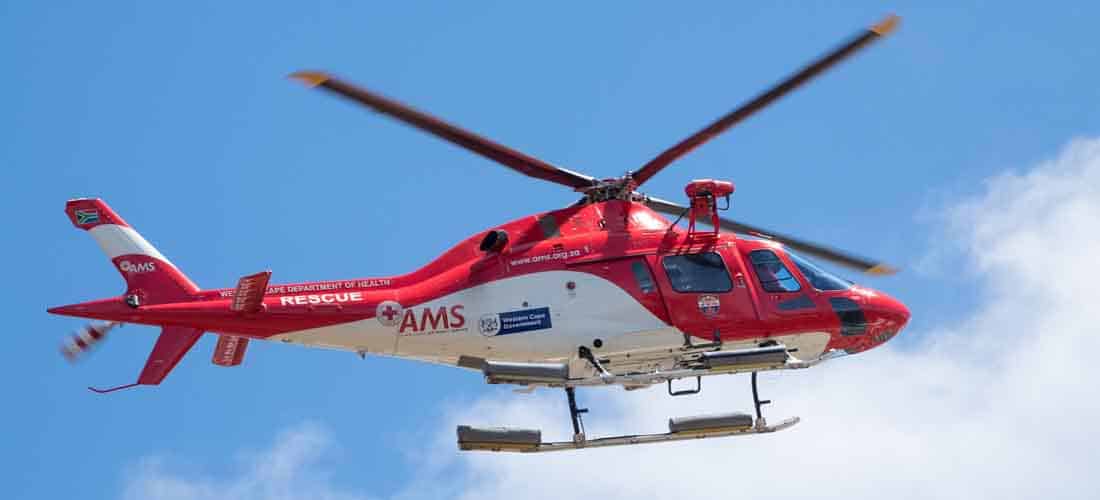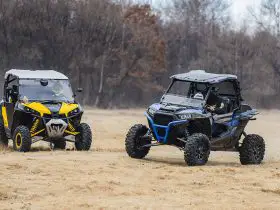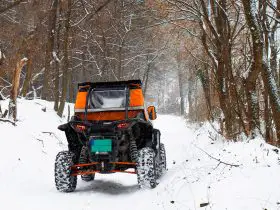Most UTVs are not used on public roads or paths, which means they are not required by state law to be insured the way that you would need to insure a car. But you would probably want an insurance to protect your passengers, yourself, your vehicle, others property if and accident occurs or your UTV gets stolen. Insurance companies group most coverage plans under their motorcycle coverage, along with other smaller vehicles like scooters. Check your local laws and talk to your insurance company.
Table of Contents
Insurance for Off-Roading Vehicles
There are some misconceptions about when and where insurance is required. This is true for off-roading vehicles in general and UTVs in particular. This is because most of the laws that apply are in regards to where the UTV is being driven and by whom instead of focusing on the vehicle itself. In this article, we will be focusing on the American insurance rules and regulations as they apply to UTVs. For information on other countries, you will want to look at their official website on insurance laws and practices.
There are also state, federal, and county laws that can impact whether or not you are required to carry a form of insurance for your UTV or the driver, so before heading out on your UTV, it is always a good idea to see if you have any special laws surrounding your town or county regarding driving on an off-roading vehicle. These laws are usually found on your local county’s department of motor vehicle website.
Do You Need Insurance for Your UTV?
It depends on where you plan to ride it, who will be driving it, and what you will be using it for specifically. If you are using it for your business, then there are insurance considerations that would not be pertinent if you are solely using it for entertainment. Whether you will be driving alone or with passengers should also be a factor that you take into consideration. Always make sure you review insurance plan details before purchasing so that you can make sure that it fits with your needs.
Several types of insurance could apply if you chose to purchase them. These include vehicle insurance, rider insurance, and theft insurance. We will be going over each one of those in detail a bit further on. Even if you are not required by your state or local laws to have valid insurance to drive your UTV, you still might want the protection it provides in case of an accident, theft, or some other unforeseen event.
When to Purchase Insurance
The moment you purchase a UTV, there is potential for something to happen to it. Insurance coverage could help to make sure that you do not suffer a complete loss in the case of an accident. If you are leasing, then most likely, you will have been forced to choose some form of liability and collision insurance at the time of purchase.
Even though insurance is not always legally required, you still want to make sure to check local laws before deciding to forego insurance. Anytime you intend to have someone else in the vehicle with you or you ride in an area that gets quite a bit of traffic, it is best to have some form of insurance before going out. That way, no matter what happens, you have some coverage.
Federal and Local Laws
Most UTVs and other off-roading vehicles are not used on public roads or paths, which means they are not required by state law to be insured the way that you would need to insure a car. That being said, there are still local laws that will need to be followed. For example, some forestry areas require liability insurance coverage for any riders on ATVs or UTVs.
If you would like to see state laws regarding insurance requirements for your UTV as well as regulations stating where one can and cannot be driven, then you can visit your local state department of motor vehicle in person or by checking out their website. There is also a handy guide here. (https://www.edgarsnyder.com/atv/atv-laws-by-state/)
You can also find the official federal guidelines for motorized vehicles here. (https://www.fs.usda.gov/Internet/FSE_DOCUMENTS/stelprdb5423350.pdf) That link will bring you to a place that provides national laws and regulations regarding operating any type of motorized vehicle in the United States.
Forestry Laws
In 2005 the United States Forest Service made it a requirement that specific district roads should be designated for off-roading. This means that you cannot arbitrarily drive through forest service land and must adhere to their guidelines on which trails, paths, roads, and open areas can be driven on by your UTV and which cannot.
Types of Insurance
There are several different reasons to be insured and plan packages that you can choose between. Below we have listed a few of the most common reasons for wanting to purchase insurance and the types involved.
Bodily Injury Liability
If you intend to ride in an area where you may encounter others, or if you will be using your side by side to go off-roading with friends, then it is a good idea to make sure you have at the very minimum liability insurance such as bodily injury liability. Some states have laws requiring rider insurance in these instances in case someone else is accidentally injured or killed while you are operating the vehicle.
Bodily injury liability will cover the cost of medical procedures and legal proceedings in the case of injury or death to a third party. The coverage will usually be for your UTV and not for you, so anyone driving it will be covered in this way. The insurance company will determine the limit per incident.
Property Damage Liability
This covers any damage you may do to a third party’s property, including possessions and land. There is a limit per incident, but it will vary based on the insurance provider.
Optional Insurance Coverage
Some insurance providers also have optional coverage that is not automatically included, but which can be added on if you want it. Each provider is different, but they usually involve the following.
- Medical Payments
- Coves medical costs for injury sustained by anyone riding your UTV
- Collision
- This is usually required if you are leasing or financing your UTV and it covers the cost of collision damage after deductible
- Uninsured/Underinsured Motorist
- Covers injuries to anyone riding your UTV for injury caused by an outside party who is uninsured or underinsured
- Comprehensive
- This covers any UTV damage that is not directly related to a collision. This can include theft, vandalism, or natural disasters
Other Service and Coverage Options
Insurance companies group most coverage plans under their motorcycle coverage, along with other smaller vehicles like scooters. They offer similar insurance services to those you would see under a traditional plan, which can include but is not limited to the following.
- 24-Hour Roadside Assistance
- Claims-Free Discount
- 24-Hour Claims Service
- Multiple Vehicle Discount
- Safety Course Discount
- Total Loss Coverage
- Upgrade Coverage
- Contents Coverage (for equipment or materials you haul in your UTV)

Average Cost
There are a lot of factors that go into determining the end price quote for insurance coverage on a side by side. The usual price for standard coverage is somewhere around $25 a month. However, this is an average and does not take into account UTVs used for business purposes (e.g., tours or hauling workers into remote locations) or for official sports racing.
Some insurance companies allow fees to be waived it you perform specific requirements such as completing safety courses or if it will be part of a multi-policy plan. You can check with your insurance provider to see what they offer.
Side by Side Insurance Comparisons
Below are some comparisons in coverage and prices for some of the most popular insurance companies currently offering UTV coverage. Most insurance providers also have additional options that they will be able to present when you sign up with them that may not be listed in the initial quote.
Farmers
- Standard Coverage Options
- Uninsured motorist
- Medical payments
- Comprehensive
- Liability
- Collision
- Additional Add-On Coverage
- Increased liability limits
- Towable trailers and sleds
- Transport trailer
- Optional equipment
Esurance
- Standard Coverage Options
- Uninsured motorist
- Medical payments
- Comprehensive
- Liability
- Collision
- Additional Coverage
- Transport trailer
- Optional equipment
- Extra Features
- Coverage applies to rentals
State Farm
- Standard Coverage Options
- Uninsured motorist
- Medical payments
- Comprehensive
- Liability
- Collision
Allstate
- Standard Coverage Options
- Uninsured motorist
- Medical payments
- Comprehensive
- Liability
- Collision
- Extra Features
- Multi-policy discount
- Full-pay discount
- Homeownership discount
- Safety course discount
Progressive
- Standard Coverage Options
- Uninsured motorist
- Medical payments
- Comprehensive
- Liability
- Collision
- Additional Coverage
- Enhanced injury protection
- Extra Features
- Home insurance covers UTV damage on your property
- Coverage includes $3,000 in coverage for gear and upgrades
- Total loss coverage for new ATVs
- Carried contents coverage
- Full replacement cost and no depreciation for parts
- Original Equipment Manufacturer (OEM) parts
- Roadside assistance and trip interruption
USAA
- Standard Coverage Options
- Uninsured motorist
- Medical payments
- Comprehensive
- Liability
- Collision
- Extra Features
- 24-Hour roadside assistance
- Claims-Free discount
- 24-Hour claims service
- Multiple vehicle discount
- Safety course discount
Geico
- Standard Coverage Options
- Uninsured motorist
- Medical payments
- Comprehensive
- Liability
- Collision
Getting a Quote
When you go to get a quote either online or by calling your insurance provider, you will need to have all of your UTV paperwork with you so that they can look up prices based on the size, weight, class, and age of your vehicle. If you have all of this information on hand at the time, then you will be able to get a more accurate quote.









